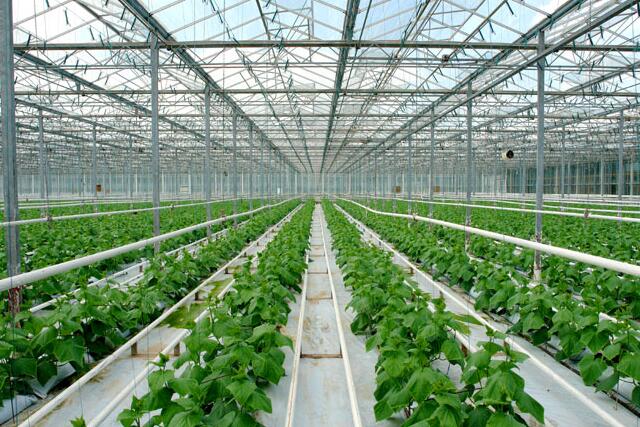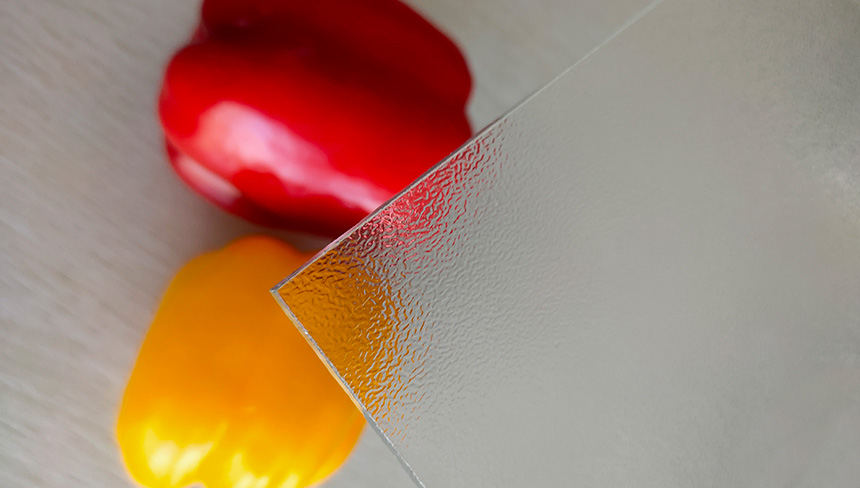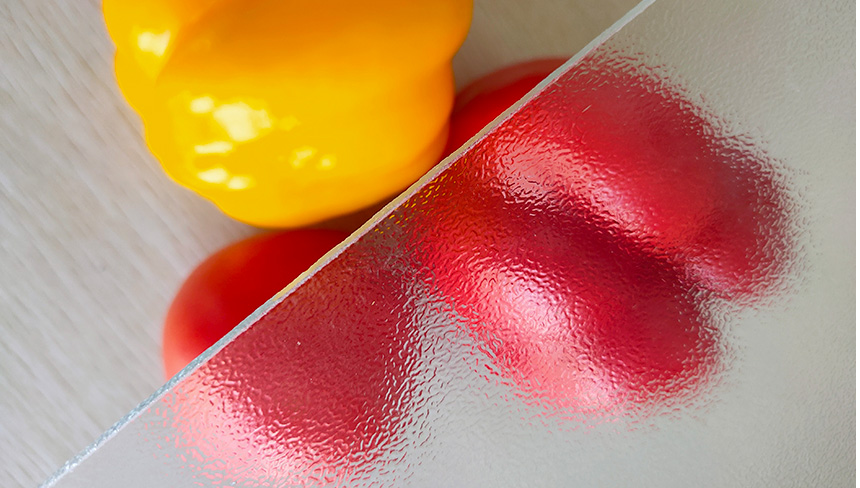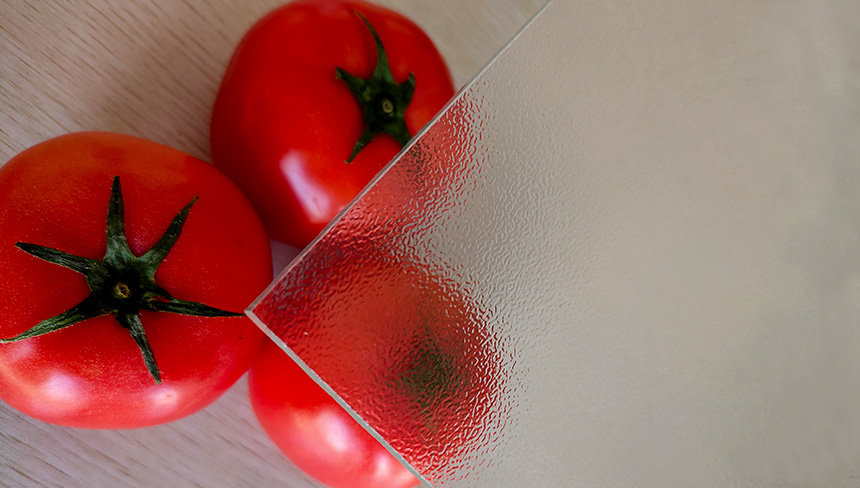
Which greenhouse anti-reflective glass process film is easy to fall off
Now many glass greenhouse owners may be worried whether the layer of film coated with high-priced anti-reflective coated glass will fall off, and the light transmittance will become worse compared with the previous glass!

Anti-reflective coated glass
Before talking about this issue, let us first understand the greenhouse anti-reflective glass. What is the coating process of anti-reflective glass? What causes the anti-reflective glass coating to fall off? What effect will the anti-reflective glass film fall off?

What is greenhouse anti-reflective glass
Greenhouse anti-reflective glass is a kind of ultra-white rolled coated glass with high light transmittance. Different coating processes can make the glass have higher light transmittance. The light transmittance standards are different for different purposes. For example, the light transmittance of anti-reflective glass for electronics can reach about 99%, and the light transmittance of AG glass in the museum can also reach about 99.8%. The light transmittance of anti-reflective coated glass in greenhouse is 97.5% at the highest. Because of its different light requirements, the light transmittance standards are different (greenhouse requires blue-violet light, and other infrared light is required).
Greenhouse anti-reflective glass application
What is the coating process of anti-reflective glass
The greenhouse anti-reflection processes currently on the market are mainly divided into the following categories: magnetron vacuum sputtering coating, etching, rolling, and pulling. The characteristics are different;

Magnetron vacuum sputtering coating: advanced technology, good coating effect, can greatly reduce reflection interference, more realistic visual experience, multiple application scenarios, museums, electronic instruments, decoration, etc.
Etching and coating process: The etching process uses chemical coating to corrode a 120nm uneven surface on the surface of the glass to increase the light transmittance of the glass. It is mainly used in: smart agricultural greenhouses, photovoltaics, etc.
Roll coating and lifting coating process: Different from the above two processes, rolling coating and lifting are similar to the method of mobile phone film to increase light transmittance. It will attach an anti-reflection film to the glass, but the drawback of this film is that it will fall off. The greenhouse glass coated glass will be exposed to the outside wind and sun. Over time, the external environment will cause irreversible damage to the film on the surface of the glass. , Severely fall off directly, affecting light transmittance.
What causes the anti-reflective glass film to fall off
According to different greenhouse glass installations, some greenhouse glass coatings are outside and some are inside. The coating layer needs to be resistant to mechanical brush cleaning on the outside, and it needs to endure the temperature and humidity inside the greenhouse. No matter which is a test for the greenhouse anti-reflective glass coating layer.

Magnetron vacuum sputtering coating process and etching coating process, the hardness of the coating layer is ≥6H, the hardness of the coating layer is basically the same as that of glass, and it can withstand mechanical brush cleaning outside. Because the coating layer is made on the glass itself, its 120nm uneven surface has strong hydrophilic properties. Even if it is installed inside, it can withstand long-term damp and heat environment, and it can prevent the formation of water droplets on the surface (surface tension of glass). ), greatly compatible with the use of the nursery greenhouse.
Why does the anti-reflective glass coating layer fall off? The main reason is that the roll coating and lift coating process have not been completely eliminated at this stage, and this coating process is relatively backward. The coating layer is later coated on the surface of the glass. Because of the different materials, it is a great test whether the hardness of the film layer and the resistance to humidity and heat are great. The occurrence of the film layer falling off is also excusable.
What effect will the anti-reflective glass coating fall off?
Greenhouse anti-reflective glass is used as a coated glass, and the first thing that is affected by the loss of the film is the light transmittance. The light transmittance of anti-reflective glass in greenhouse is mostly ultra-white tempered glass. If the original sheet is inferior, it may be ordinary float glass. The light transmittance of this kind of glass is only 90%, 88% and 89%. After falling off, it is no different from ordinary glass, and there is no anti-reflection effect.
The greenhouse anti-reflective glass is harvested for one share of sunlight. The reduced light intensity will reduce the production of crops in the greenhouse. The sunlight will not keep up, the crop growth cycle will be longer, and the operating cost will be increased.
Anti-reflective coated glass is called so many, how should I choose
Here is a vague classification for everyone, how to choose anti-reflective coating glass, remember:
Choose AG for decoration, AR for electronics, anti-reflection for greenhouses; magnetron vacuum sputtering for high-end places, and etching for agricultural greenhouses. Roller coating and lifting are not required.
Tags:anti-reflective glass diffuse glass agricultural greenhouses glass greenhouse venlo greenhouse AR glass greenhouses glass agricultural glass horticultural glass #greenhouseglass #Antireflectiveglass #Diffusetemperedglass #Ultrawhitefloatglass #agriculturalgreenhouseglass #diffuseglass #horticulturalglass #Tomatogreenhouse #Coloredpeppergreenhouse #Lettucegreenhouse #Agriculturalgreenhouse #ARglass #venlogreenhouse #greenhouseglass #Antireflectiveglass #Diffusetemperedglass #Ultrawhitefloatglass #agriculturalgreenhouseglass #diffuseglass #horticulturalglass #Tomatogreenhouse #Coloredpeppergreenhouse #Lettucegreenhouse #Agriculturalgreenhouse #ARglass #venlogreenhouse #GlassManufacturer #invernadero #ArchitecturalGlass #ClearFloatGlass #FloatGlass
Previous:How to choose anti-reflective glass and ordinary glass for glass greenhouse
Next:Patterns of diffuse glass in greenhouses with different haze levels



















